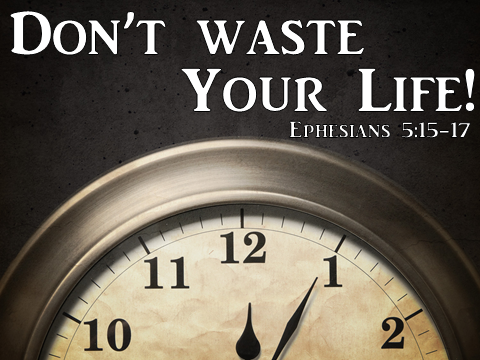After reviewing this challenging list, it's reminded me of the importance of goals within our lives, and the often review of them. -- Let me know if you disagree with any, or if some more should be added... (For a PRINTABLE version click HERE.)
"Information without application leads to frustration..."
PERSONAL GOALS:
To be answered as if your husband or wife were asking:
1. What are your
personal goals in life?
2. What personal goals
have you set for this coming year?
3. How can I help you
achieve your goals?
4. What can I do to help
or improve our financial situation?
5. Do you feel there is
a proper balance between my outside activity and my time at home?
6. Would you like me to
do more things around the house such as cleaning and decorating?
7. In regard to my
activities outside the home, what would you consider as priorities?
8. Do you feel I need to
improve in any area, such as my appearance, manners, attitudes?
MARRIAGE GOALS:
1. Do you believe our
marriage is maturing and we are coming closer together?
2. Do you feel we
clearly communicate?
3. Do you feel that I am
sensitive to your personal needs?
5. The next time you are
late in getting ready to go someplace, what would you like me to say or do?
6. What would you like
me to say or do the next time you seem to be getting impatient with something or
someone?
7. What would you like
me to say or do if you begin to criticize someone?
8. Do you feel I need to
improve in getting ready on time or getting to meetings on time?
9. Do you feel we should
go out together more often?
10. Do I make cutting
remarks about you or criticize you in front of other people?
11. What should I do in public
to encourage you?
12. Do I respond to your
suggestions and ideas as if I had already thought of them instead of thanking
you and encouraging you to contribute more?
13. Do I tell you enough about
what I do every day?
14. What little acts of love do I do for you?
Which acts of love do you like the most?
15. What most often
causes you to get angry with me?
16. Do I convey my
admiration and respect often enough?
17. Do we “play act” a
happy marriage in front of other people?
18. What do you think 1
Corinthians 7:3-7 means?
19. Do you feel we need to
see a marriage counselor?
20. What are the
responsibilities of a help mate/loving leader in the home?
21. Do we give each other
the same attention we did before we had children?
FAMILY GOALS:
1. What are our family
goals?
2. Are we achieving our family
goals?
3. A. (Wife) What can I
do to help you fulfill your responsibilities as spiritual leader of our family?
B.
(Husband) How can I better fulfill my responsibilities as spiritual leader?
4. Do you feel we are
meeting the spiritual needs of our family?
5. What kinds of family
devotions should we have?
6. List the
responsibilities stated for the husband and wife in the following passages:
1
Peter 3:1-2; Colossians 3:18-19; 1 Timothy 2:11-15; 1 Corinthians 11:3;
Ephesians 5:17-33
7. Do you feel we have a
consistent prayer life together?
8. Do you feel we are
adequately involved in our local church?
9. Do you feel we are
meeting the physical needs of our family?
10. Should we improve our
eating habits?
11. Should we get more
exercise?
12. Do we make good use
of our time? For example, do we watch too many movies? Should we have more
hobbies? Free time? Work? Read more?
13. How and when will we
discipline our children? What do you think is the biblical viewpoint of
discipline?
14. On a sheet of paper,
list the responsibilities of parents and their children in the following
passages:
Colossians
3:20-21; Hebrews 12:5-11; Proverbs 3:11-12; Ephesians 6:4.
15. What kind of
instruction and training should we be giving our children in the home?
FINANCIAL
GOALS:
1. Do you think I handle
money properly?
2. How could I better
manage our money?
3. Do you think I am:
Too frugal?
Too frugal?
Too
extravagant?
About
right?
Why?
4. Do you think I accept
financial responsibilities well?
5. Do you think we
communicate financial goals well?
6. What is your immediate
financial goal?
7. What is your primary
goal for this year?
8. What is your plan for our children’s
education?
10. What do you think
about tithing?
Necessary?
How
Much?
Where
should it go?
11. How do you feel about
giving in general?
12. Do you like the way
we live?
13. What changes would
you like to see?
14. Oh, and one more
thing… What are a few things I’ve been doing right lately?
*This has been adapted from Larry Burkett’s book, “Your Finances In Changing Times”. (p.131-136)





.png)